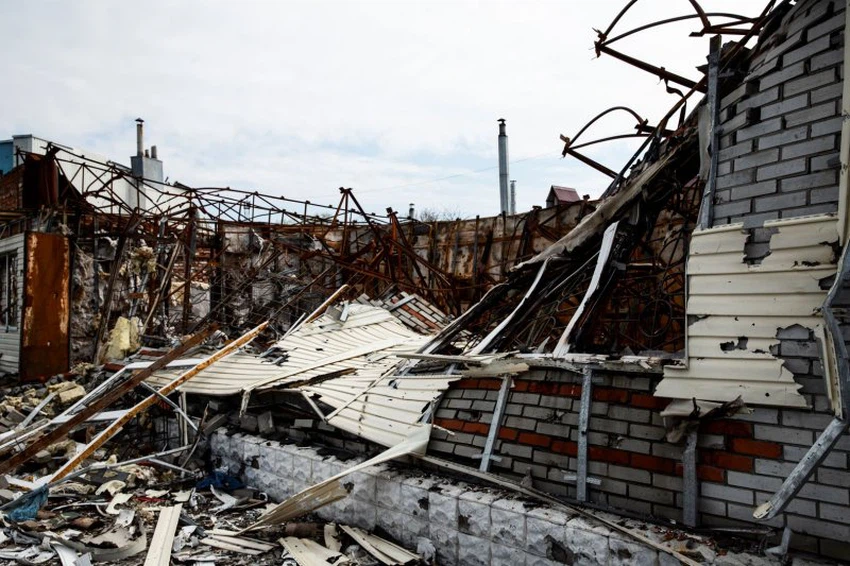Herring syndrome...challenges and effects of the Moroccan earthquake
ArabiaWeather - Earthquakes are considered one of the most destructive natural disasters and their impact on infrastructure and human societies. After a devastating earthquake occurred in Morocco, what is known as crush syndrome appears as one of the prominent challenges facing the affected population. This syndrome is known for its serious physical effects on survivors, and requires great attention and sustained efforts to deal with it and provide the necessary support to those affected.
After surviving the rubble of the earthquake, the survivors' suffering does not end. People who survive these disasters, including earthquakes, face major, life-threatening health challenges. They become at risk of developing a serious medical condition known as “mashing syndrome” or “crushing syndrome.”
What is herpes syndrome?
The discovery of the herpes syndrome dates back to 109 years ago, when it was noticed by the British doctor Eric Pioneers. He believes that the herpes syndrome includes the process of replenishing blood and replacing the body with the essential elements that it has lost.
According to experts, the development of crush syndrome is usually caused by compression over a long period of time in the body carrying heavy skeletal muscles, most often in the lower extremities. This compression can be the result of the collapse of heavy concrete walls; Due to incidents such as military bombing or catastrophic earthquakes.
This continuous compression for hours or even days leads to decreased blood flow and nutrition to the muscle fibers, causing them to damage and release the muscle protein known as Rhabdomyoglobin into the blood circulation. Moreover, potassium leaks from muscle cells and is released into the blood circulation, in addition to the release of the muscle enzyme creatine kinase.
The diagnosis of herpes syndrome is based on a significant increase in potassium and creatine kinase levels in blood tests, with the possibility of low levels of calcium in the blood and the development of metabolic acidosis in the patient. It is noted that there are large amounts of muscle protein in the blood that exceed the ability of the kidneys to filter it from the blood and excrete it in the urine. Due to the deposition of this muscle protein in the renal tubules, the kidneys stop working, and the patient is exposed to acute renal failure. In this context, the drainage of urine outside the body becomes interrupted, which increases the severity of the condition and requires treatment with dialysis sessions.
The medical expert points out the importance of giving the patient large amounts of intravenous fluids before renal failure develops, in order to facilitate the drainage of muscle protein through the kidneys. The volume of intravenous fluids required, calcium replacement, and dialysis sessions must be considered as needed until recovery from renal failure occurs.
Many victims under the rubble contract this disease, and sometimes the intense pressure on their bodies leads to the amputation of one of their organs.
Due to the seriousness of herpetic syndrome, survivors always remain under medical care and observation, and are not allowed to leave the hospital until their fluid levels return to normal.

What harm could it cause?
Crushing syndrome causes significant damage to the bodies of survivors who have suffered physical injuries during an earthquake or fallen debris. These injuries include muscle and tissue swelling, bone fractures, and cuts. These injuries result in severe tissue and muscle damage, leading to muscle breakdown and tissue destruction. Herpes syndrome also causes severe shock and may lead to serious kidney failure.
How to reduce the risk of herpes syndrome?
Answer: The Moroccan earthquake and previous earthquakes in Syria and Turkey are considered among the largest disasters that the region has witnessed in decades, as the number of casualties has increased greatly, which necessitated the presence of doctors from various specialties to deal with these cases. The medical team includes orthopedists, surgeons and experts in treating earthquake-related injuries, including severe limb injuries. Moreover, doctors specializing in motor, neurological and psychological rehabilitation play a vital role in providing comprehensive post-ordeal care, as psychological and physical care for survivors is essential to regaining their health and quality of life after the earthquake.
Providing rapid and effective medical care to earthquake survivors can contribute to reducing the effects of crushing syndrome and increasing the chances of survival and recovery.
Arabia Weather App
Download the app to receive weather notifications and more..



